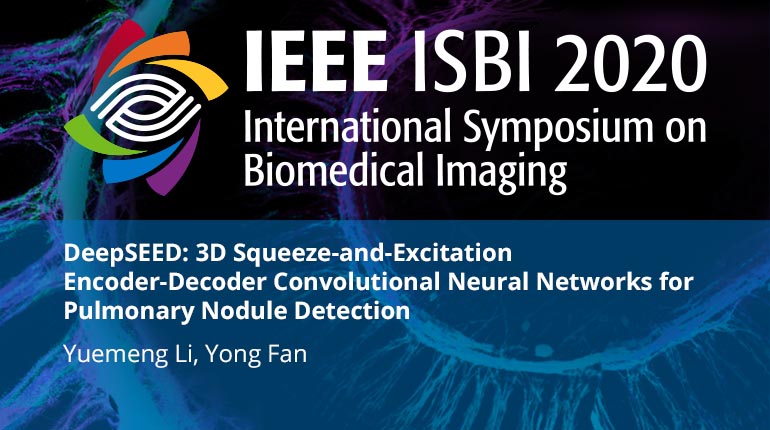
Already purchased this program?
Login to View
This video program is a part of the Premium package:
DeepSEED: 3D Squeeze-and-Excitation Encoder-Decoder Convolutional Neural Networks for Pulmonary Nodule Detection
- IEEE MemberUS $11.00
- Society MemberUS $0.00
- IEEE Student MemberUS $11.00
- Non-IEEE MemberUS $15.00
DeepSEED: 3D Squeeze-and-Excitation Encoder-Decoder Convolutional Neural Networks for Pulmonary Nodule Detection
Pulmonary nodule detection plays an important role in lung cancer screening with low-dose computed tomography (CT) scans. It remains challenging to build nodule detection deep learning models with good generalization performance due to unbalanced positive and negative samples. In order to overcome this problem and further improve state-of-the-art nodule detection methods, we develop a novel deep 3D convolutional neural network with an Encoder-Decoder structure in conjunction with a region proposal network. Particularly, we utilize a dynamically scaled cross entropy loss to reduce the false positive rate and combat the sample imbalance problem associated with nodule detection. We adopt the squeeze-and-excitation structure to learn effective image features and utilize inter-dependency information of different feature maps. We have validated our method based on publicly available CT scans with manually labelled ground-truth obtained from LIDC/IDRI dataset and its subset LUNA16 with thinner slices. Ablation studies and experimental results have demonstrated that our method could outperform state-of-the-art nodule detection methods by a large margin.
Pulmonary nodule detection plays an important role in lung cancer screening with low-dose computed tomography (CT) scans. It remains challenging to build nodule detection deep learning models with good generalization performance due to unbalanced positive and negative samples. In order to overcome this problem and further improve state-of-the-art nodule detection methods, we develop a novel deep 3D convolutional neural network with an Encoder-Decoder structure in conjunction with a region proposal network. Particularly, we utilize a dynamically scaled cross entropy loss to reduce the false positive rate and combat the sample imbalance problem associated with nodule detection. We adopt the squeeze-and-excitation structure to learn effective image features and utilize inter-dependency information of different feature maps. We have validated our method based on publicly available CT scans with manually labelled ground-truth obtained from LIDC/IDRI dataset and its subset LUNA16 with thinner slices. Ablation studies and experimental results have demonstrated that our method could outperform state-of-the-art nodule detection methods by a large margin.
 Cart
Cart Create Account
Create Account Sign In
Sign In





